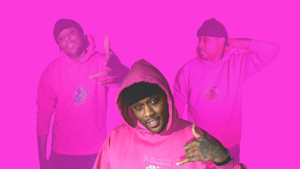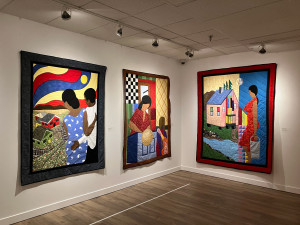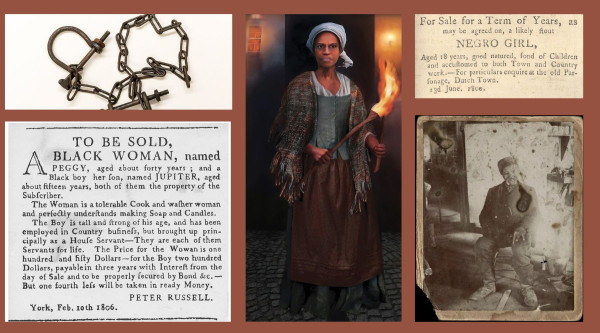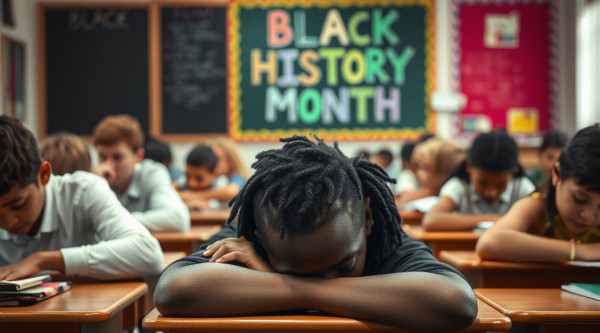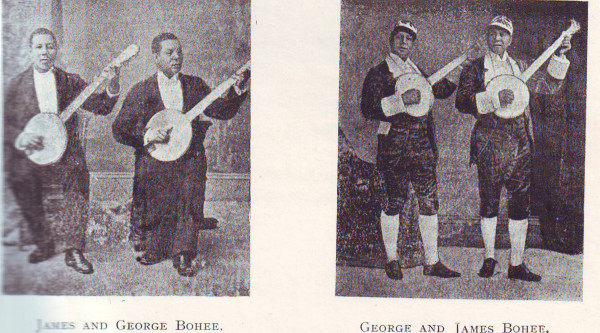Because even when you’re quote, unquote, free—the question remains, are we really? Imagine my astonishment when I learned that Canada had an Emancipation Day. Here I was, as we always tend to do, celebrating Juneteenth with our Southern cousins. Yet, as a Black Canadian, I was oblivious to what transpired historically in my backyard.
Award-winning Founder and Celebrator-In-Chief of FreeUp! Ngozi Paul was once in the same spot many of us stood in. I am entirely aware of the correlation and tradition behind Carnival and emancipation in the Caribbean. Yet why wasn’t I aware of its place in Canada? Many factors contribute to that, and we’ll touch on a major one shortly. But know that Paul is all about emancipation. Her company is named Emancipation Arts, and she starred in and wrote the award-winning The Emancipation of Ms. Lovely. So basically, emancipation is her thing. Still, she will never forget when the questionable moment came to pass. “I remember my mother was going on the Freedom Train for Emancipation Day. She asked, ‘You feel like going?’ I responded, “‘What?’ She said, ‘Emancipation Day.’ And I looked at my mom. She’s a teacher and said, ‘You know, about Emancipation Day.’ And I was like, no, mom, I don't. She said, ‘Yes, you do.’ So, of course, I must know. But I was blown away that I didn't. And I was like, red flag—not even an amber light.”
Paul’s parents are pan-Africans from the Caribbean and had her attend Black cultural heritage classes. Yet, at the time, she had no clue what her mother was alluding to. Nonetheless, it was that moment, coupled with speaking to social justice advocate Rosemary Sadlier, when everything started to make sense and come full circle. For decades, Sadlier, a recipient of the Order of Ontario who led the Ontario Black History Society for twenty-two years, has been steadfast about having the government recognize Emancipation Day nationally. She fought tirelessly and was persistent in her quest. Also, Paul’s relentless self-enlightenment and coaching by her sister Annamie Paul (former Green Party of Canada Leader) on how to get a day recognized by the government was a huge help. Because of Sadlier’s unshakable determination, Paul’s resoluteness, and the assistance of many others, a motion was unanimously passed in the House of Commons to formally recognize Emancipation Day on August 1.
The date observes the anniversary of when Britain’s Parliament abolished slavery in the British Empire in 1834. It is a moment to celebrate—our moment. And Paul is not oblivious to its importance. “I vowed at that point that I can't have a company named Emancipation Arts that doesn't celebrate Emancipation Day (laughs). I said to Rosemary that we would ensure that the day is something that becomes a part of popular culture and the zeitgeist of Canadian culture. Not just Canadian culture, but also, I think, our global identity,” says Paul.
In 2017, Paul created FreeUp! with the notion of growing awareness around Emancipation Day and civic engagement. Through Emancipation Arts and in conjunction with CBC, FreeUp! was showcased as an art special and celebration of our history—Canadian history. This year, the annual CBC arts special comes to us via another beautiful and impactful installment of the FreeUp! series. FreeUp! 2022 brings us FreeUp! Talks: a roundtable of prominent persons from the community (Dwayne Morgan, Jennifer Holness and many more) who have come together to share their experiences about what freedom means to them.
The special also includes four songs presented by a few of Canada’s preeminent Black vocalists. The artists perform under the brilliant illumination of a sole spotlight. It’s symbolic and strikes a chord deep within. Listening to Measha Brueggergosman, Jully Black, Ahmed Moneka and Waleed Abdulhamid, and Tika sing their songs so passionately adds to the underlying complexity and noteworthiness of the special. It’s all extremely moving, and the performances are stellar. Let’s not forget that song and music are a big part of Black culture and slavery. From hope to despair, it’s a reminder that music was a way for enslaved people to survive and express themselves via storytelling. FreeUp! 2022 is nothing short of memorable moments to make you nod your head or, at the very least, do some much-needed research.
Now, remember one major factor I was going to touch upon about perhaps why we’re not aware of Emancipation Day and Black History’s place in Canada? Well, my son in junior kindergarten learned more about Black History during Black History Month than I’ve learned my entire life in the Canadian education system. Like Paul, I spent my childhood working and learning leadership and history in Black community centres in Montreal. However, in school, there was nary a line about Mary Ann Shadd or Mathieu Da Costa in Quebec history books. I agree wholeheartedly with Paul regarding Emancipation Day being a holiday emboldened on our calendars. We’ve heard this discourse many times before. It’s not a secret—we can’t be knowledgeable of our place in Canadian history when institutions do not facilitate shaping the narrative. If we plant the seeds early, we will reap the benefits for life.
Another question we must ask ourselves is who decides what we celebrate? Paul believes we do. “You know, I had a conversation where we were talking about Canada Day, and I said point blank— I'm looking for Emancipation Day and for FreeUp! to be as big as Canada Day celebrations. Why not? We decide what's important to us. What is St. Patrick's Day? I mean, we decide. We do. We decided on Valentine's Day, for goodness sake.“ She sees FreeUp! as an opportunity for us to decide how we can celebrate the momentous day. As we discussed a few of the celebrations that used to occur, Paul spoke of one in Owen Sound that was new to me. “They used to have Emancipation Day celebrations in Windsor, Ontario, where tens of thousands of people would come. All Diana Ross and people would come from Detroit. I mean, as it was so much, it was. And there's more and more because we've been here. We've been here. And these things, I always wonder…the things like that stopped happening because people were tired.”
As we’re all too aware, fighting for what sometimes feels like a lifetime can take a toll. Even the ever-present and tenacious activist can fall to pieces under the constant contention, heaviness, and disregard they buck up against regarding Black culture and history under the white gaze. Nonetheless, the major social shifts in community and the world add to the foundation to build upon. “I'm not sure what it is with the explosion of awareness around inequities, systematic oppression, and inequalities. But that, coupled with the pandemic, sort of left people in a daze. People were shook.” Paul continues, “At any moment in history, you're still having a human experience. So, when I found out about Emancipation Day, I was like, this cannot stand, you know?”
FreeUp! will continue to shine the light upon the significance of our freedom via the arts. Therefore, it’s only fitting that Paul shares her perspective of what freedom means to her. She says, “Oh, it's so funny because that honestly continues to evolve. Just as I evolve, the idea of what freedom is continues to evolve. And for me, now, I kind of think of it as a domino effect. One of my favourite sort of mantras is ‘be still and know that I am God.’”
“For me, freedom is the opportunity for a sense of peace and presence, which exists in the gift. It allows infinite expansion. Right? So, in terms of my own practice, it’s the ability to have, because then you go— okay, if you don't feel safe, you can't trust. And if you can't trust, you can't relax. And if you can't relax, you can't think. And if you can't think, you can't grow. You know what I mean? So, for me, freedom is that ability to have the space to be still, to tap into the infinite. And then the infinite is you're allowed to expand. You're allowed to shine. You're able to grow. You're able to be in alignment to reflect your truth. That's freedom.”
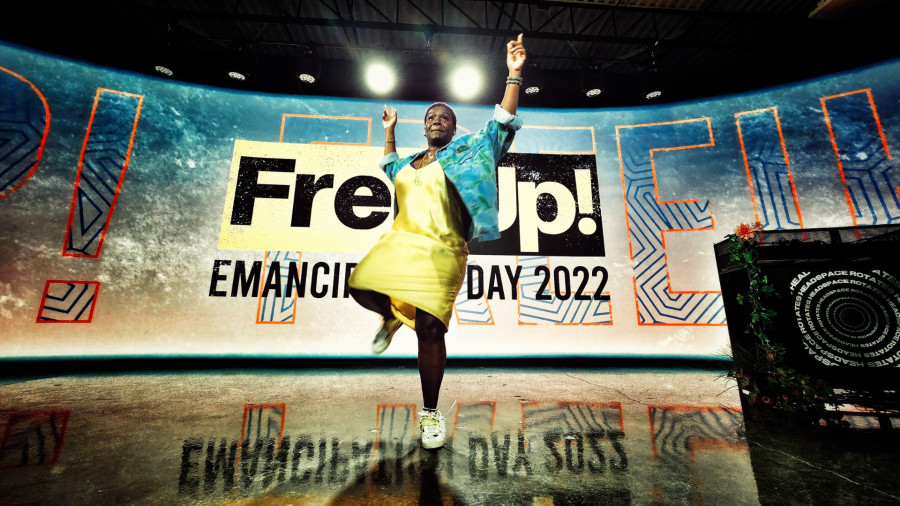
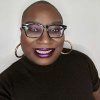 By
By 

